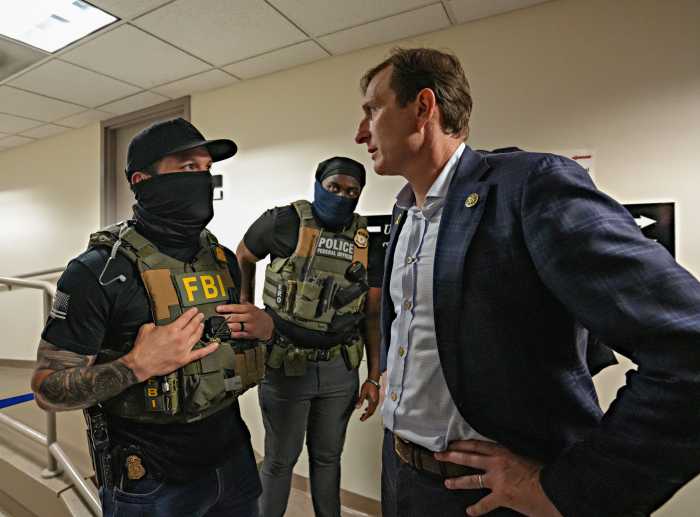With sentencing for disgraced former Assemblymember Anthony Seminerio set for February 4, a U.S. federal judge released a scathing 46-page pre-sentencing decision that “exposed how Seminerio used his office to earn over a million dollars in ‘consulting fees.’”
Judge Naomi Reice Buchwald released her findings from the hearings in late October on Thursday, January 14.
She used Seminerio’s own words against him in answering the question “What the [expletive deleted] does it mean [to be an] elected official?” – “It doesn’t mean —.”
Seminerio pleaded guilty in June of 2009 to charges that he took nearly $1 million from hospitals, a school and other entities for actions he undertook as a member of the State Assembly. He allegedly used Marc Consultants – the consulting firm he ran for nearly eight years – to collect payments for actions he took as a state legislator.
However, in pre-sentencing submissions, according to the papers filed, Seminerio argues that he did not have proper notice that the conduct alleged by the government was illegal – a claim Buchwald classifies as “unavailing.”
Buchwald’s findings said that the hearings establish “a loss calculation of at least one million,” and, accordingly, “the applicable advisory guidelines range, before any potential departures, is 135 to 168 months.”
There has been no recommendation by the court, however, according to defense attorneys, as to a sentence.
Prosecutors believe one of the organizations that paid Seminerio one of the largest sums of money was Jamaica Hospital. In a message that Seminerio left in February 2008 for David Rosen, the CEO of Jamaica Hospital, he thanked him for his help in bringing in Winston Financial to Marc Consultants.
The former politician’s alleged business partner was on record as saying, “We charge a consulting fee, he charges the consulting fee to the hospital, and I work for his consulting firm . . . And we don’t have to do nothing.”
Buchwald writes in the decision, “The record is devoid of any bona fide consulting services that fall outside the scope of activities an elected official could readily be expected to perform on behalf of his or her constituents.”
She calls on New York Public Officers Law S 72 (2), which prohibits legislators from “having any interest, financial or otherwise, direct or indirect, or engag[ing] in any business or transaction . . . or incur[ing] any obligation of any nature, which is in substantial conflict with the proper discharge of his duties in the public interest.”
Therefore, Buchwald writes, “a legislator’s intentional failure to disclose a conflict of interest or his acceptance of any payment in connection with his official duties . . . falls within the federal crime of honest services fraud.”
“We have no comment as this is a pending matter,” said attorney Pery Krinsky.

































